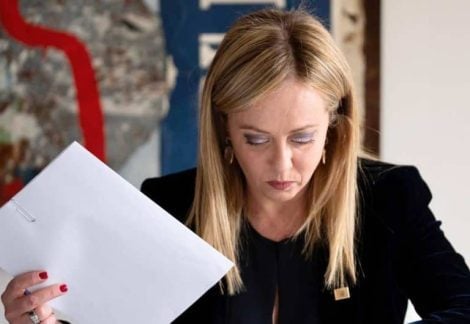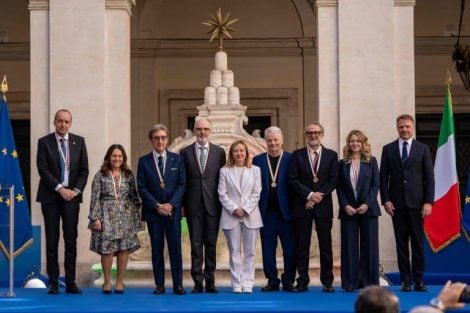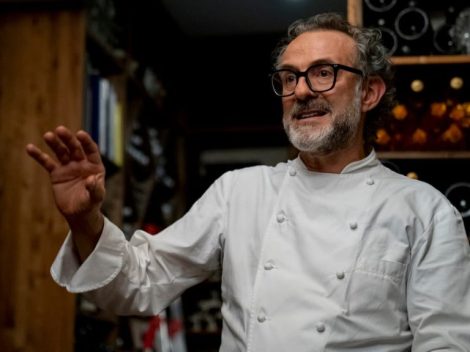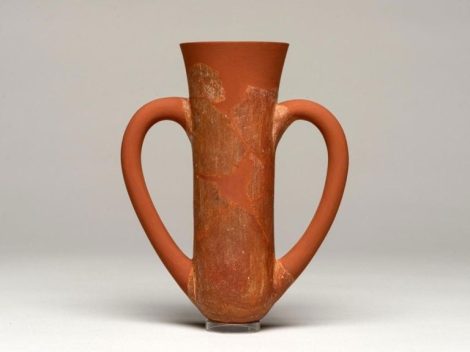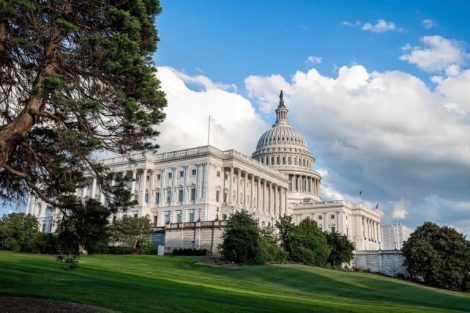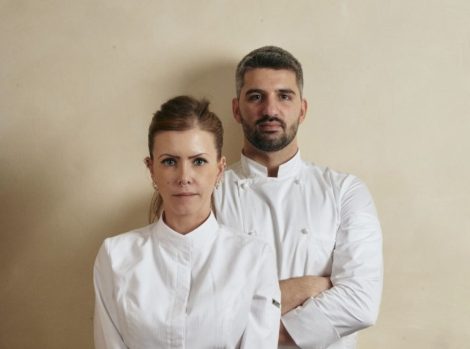With its 90 years under its belt, Boadas is the oldest bar in Barcelona, and the second oldest in Spain: two small doors and a counter just steps away from La Rambla, a place where you can breathe the charm of yesteryears, which has returned to its former glory in recent months. The credit goes to the new owners: Simone Caporale and Marc Álvarez, the golden couple who climbed the 50 Best Bar list with their Sips, also in Barcelona, hitting one milestone after another.
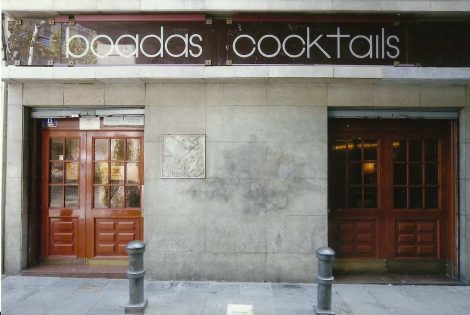
When they took over, there was a bit of chaos on both sides of the counter, as often happens in certain old places where everyone does their own thing. Few bills were paid in full, some weren't paid at all, management was lively, a bit chaotic, no one spoke English, and the idea of foreign customers wasn't well received. Upon arrival, Caporale and Álvarez immediately saw where to start: sorting out finances, inventory, recipes, and implementing a managerial approach.
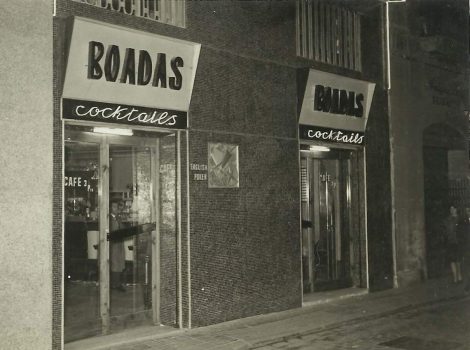
And starting again with the classics of that beloved establishment that has been welcoming loyal guests for almost a century: three generations of customers have passed through here, sometimes together, and it's very likely that the people of Barcelona have had their first drink at this counter. The Spanish Civil War and World War II didn't manage to stop the shakers; COVID did, but only for a couple of months. Upon reopening, Boadas wasn't in great shape, though: over the years, it had lost some of its luster, weakened by a somewhat neglectful management that didn't do justice to its glorious history.
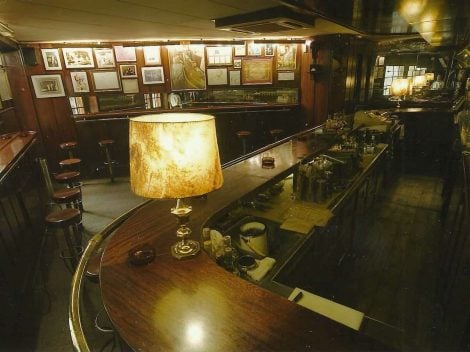
Outpost of Classic Cocktails
A history that the new owners don't want to erase. Boadas is an outpost of the old school of mixology; perhaps that's why they call it the Cathedral. The necessary thing is to put everything in order, organize better, fix drink lists and recipes, remove some of the dust that had tarnished the brass of this institution, and then maintain, preserve, and respect it, so it doesn't lose its authenticity. This is a place where nothing should change, starting with the cocktails, with classics from the past that still have their say, especially when made with the precision of the new management.
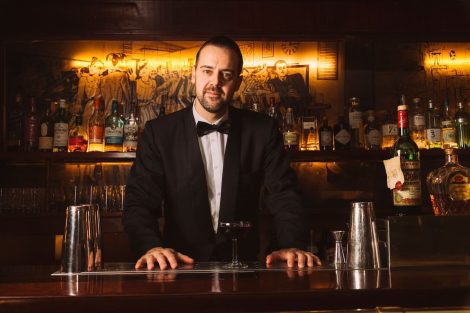
Behind the counter are now some young talents: Federico Daniele, Lobsang Cees, Mirco Dascoli, Filippo Acquaviva, Ramona Roman. A barlady returns almost 50 years later, María Dolores, daughter of founder Miguel Boadas, born in Cuba to Catalan parents in 1895, who gained experience in a Havana animated by great names in history and literature - weighty names also on the drinking front - before opening his own place in Barcelona, where it is still located today. Few believed in that place, but despite the upheavals of history, Boadas managed to hold on and even gain a few more square meters, until it conquered the arrangement it still has today, with that triangular room with the counter at the back that was the origin of many stories.
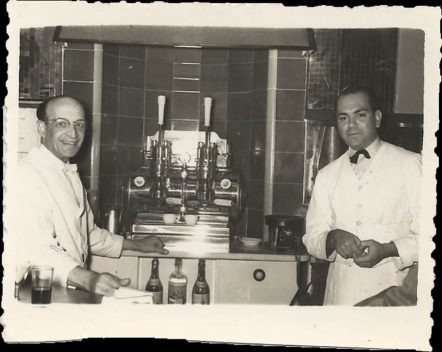
It is said, for example, that they served cocktails with very little alcohol to those who couldn't handle drinking. This mythical figure has many stories circulating about him, a true bar creature to whom customers paid an important role in their days. And Boadas repaid them with dedication that accompanied him until the last day, when he passed the baton and the shaker to his daughter María Dolores, who practically grew up in that triangle of drinks and friendships. She took the reins in 1967 with her husband Josep Lluís Maruenda, a revolutionary barlady ahead of her time, in a world where it wasn't common to find a woman behind the counter, let alone working.
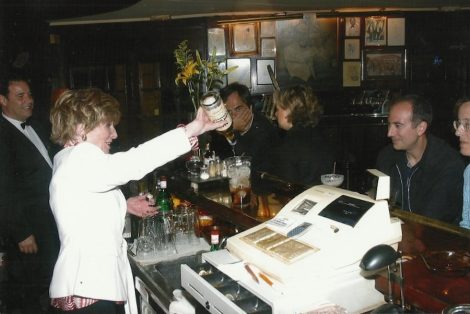
A Famous Counter
Painters, singers, actors, writers have sat at this counter: Dalí, Miró, Garcia Lorca, Greta Garbo, and then Hemingway, who in Cuba drank daiquiris at the Florida where Boadas cut his teeth (whether it was true or not, it doesn't matter much: Uncle Ernest sanctified bars even just with the legend of his presence), many well-known faces and just as many ordinary people, a mix of regular customers, known and unknown, who managed to weave the soul of this place.
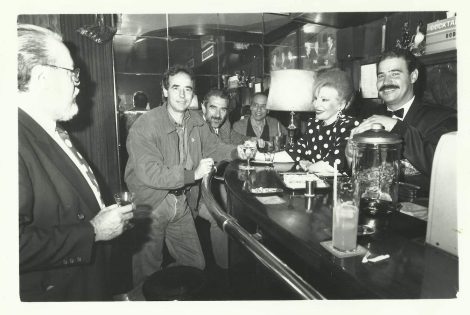
Even today, the memory of the golden days is celebrated in the party that every September 15th celebrates María Dolores' name day, who passed away in 2017, when the ownership of the establishment had already passed to Jerónimo Vaquero Barea, a bartender at Boadas for over fifty years. Everyone kept the ritual of drinking well alive, avoiding the trends of peculiar flavors, overly fancy drinks, and those with impossible names. That's not Boadas's style.
This is a place of great tradition and equally great charm, made of soft atmospheres, Art Deco details, and a counter that could tell a century of Spanish history and paintings that instead tell the story of the establishment, the faces of those who animated it over the decades, with the great portrait of María Dolores dominating the scene and observing, benevolent, the new craftsmen of drinking. It is they who have taken on the spirit of Boadas with its timeless cocktails, neatly divided into classics, modern classics, and originals.
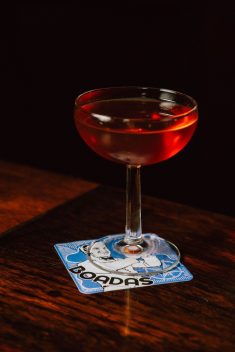
To these is added, every day for 91 years, a "cocktail of the day," generally an obscure classic. No beer, no wine, or shots, just a drink list that is a statement of intent among Tommy's Margarita, Daiquiri, and Dry Martini, and then Sofia Loren and Ballet 1950, original creations of the establishment that in this new phase has dispensed with the spectacle of the bartenders of the past who, in black tuxedos and bow ties, literally flew the cocktails from one glass to another: the show gained, but the taste didn't.
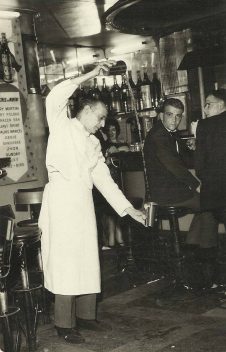
Now that that theater is over, they preferred to focus on the care of the drinks, made with meticulous precision by guys still in old-style tuxedos (we saw them in an unusual aqua green) but with the precision of a different league. The celebrations for the 90th anniversary will continue throughout 2024 with unmissable evenings where shakers will cross with the great names of classic mixology: Salvatore Calabrese aka the Maestro, the team from Caffè La Trova in Miami, Harry's Bar in Paris, and in the future, Camparino, Agostino Perrone from The Connaught in London, Charles Schumann from Munich, and probably the Florida where Miguel Boadas worked in the '20s with his cousin, the bartender who invented the frozen daiquiri. Quite a feat.

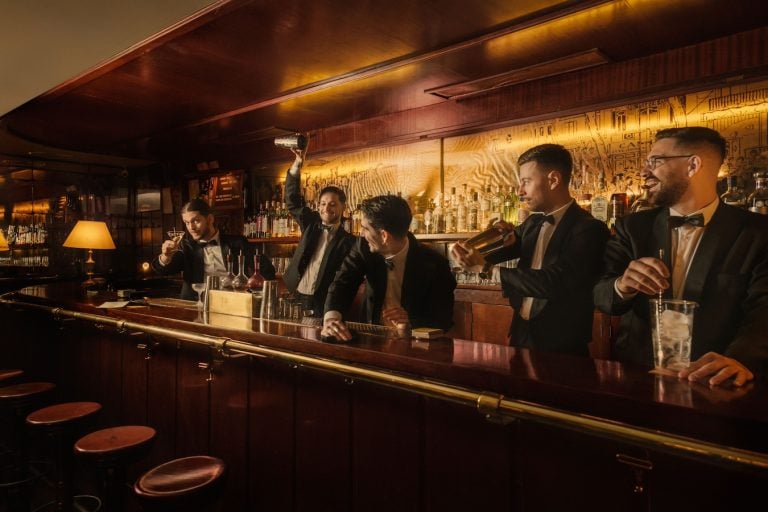
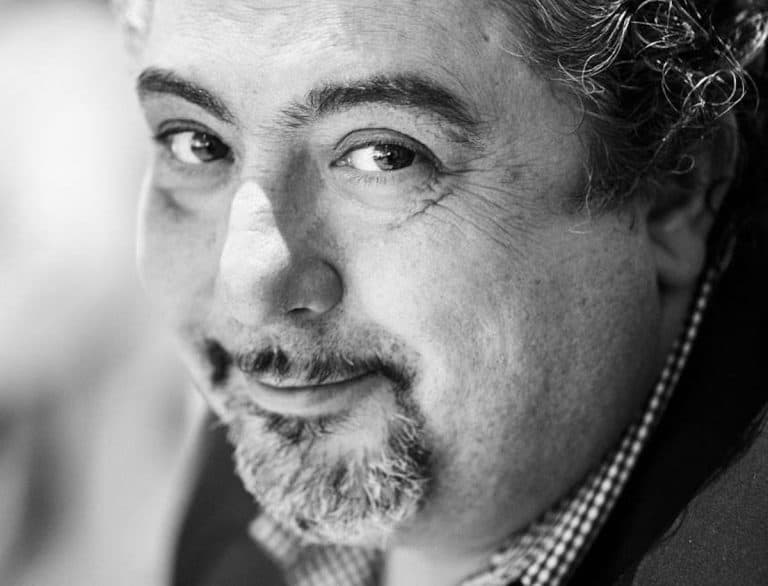 Farewell cacio e pepe in New York. "With tariffs, Pecorino Romano will also become more expensive." The warning from Giuseppe Di Martino
Farewell cacio e pepe in New York. "With tariffs, Pecorino Romano will also become more expensive." The warning from Giuseppe Di Martino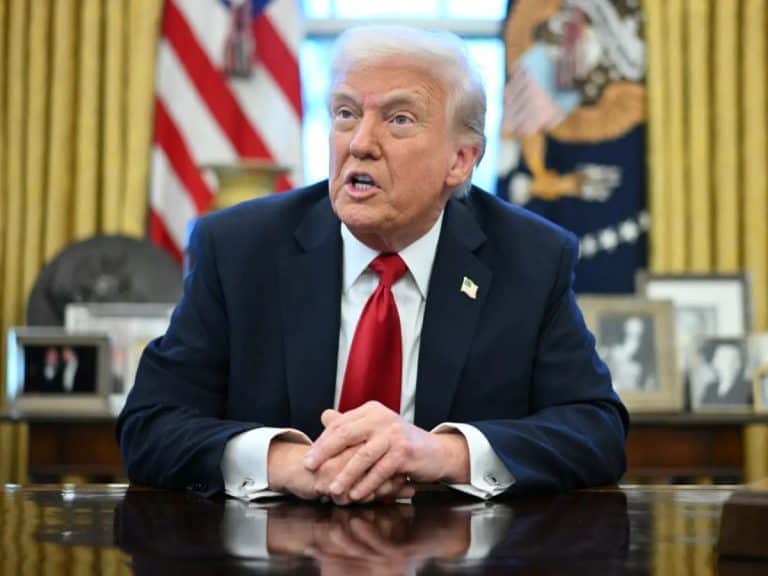 Against tariffs? Here are the US foods that could be "hit"
Against tariffs? Here are the US foods that could be "hit"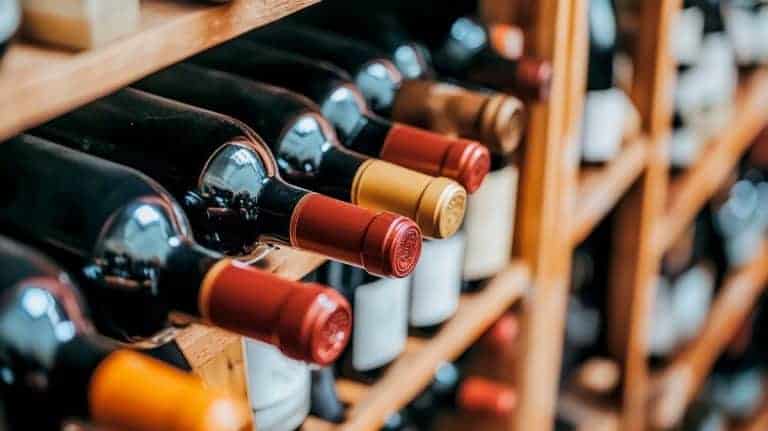 US tariffs: here are the Italian wines most at risk, from Pinot Grigio to Chianti Classico
US tariffs: here are the Italian wines most at risk, from Pinot Grigio to Chianti Classico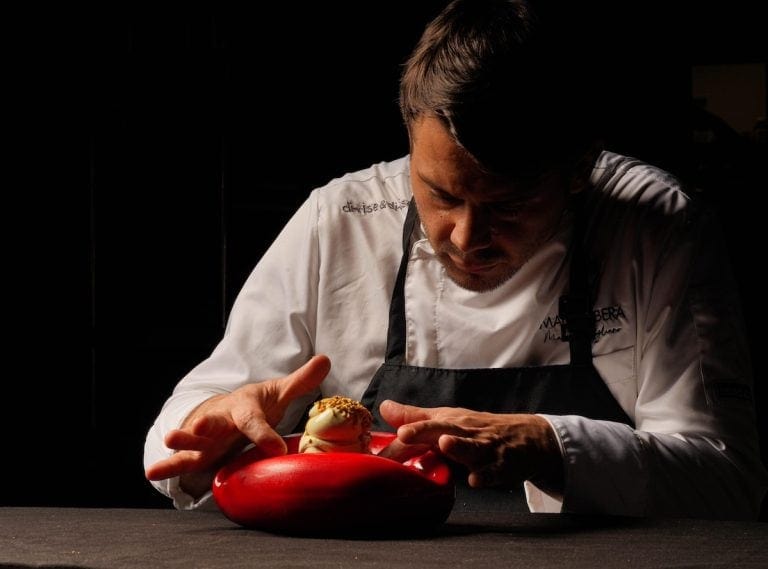 "With U.S. tariffs, buffalo mozzarella will cost almost double. We're ruined." The outburst of an Italian chef in Miami
"With U.S. tariffs, buffalo mozzarella will cost almost double. We're ruined." The outburst of an Italian chef in Miami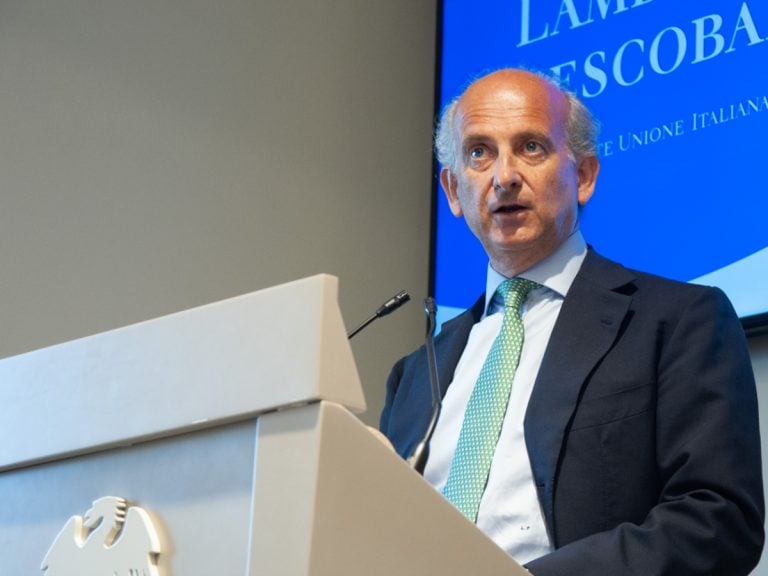 "With US tariffs, extremely high risk for Italian wine: strike deals with buyers immediately to absorb extra costs." UIV’s proposal
"With US tariffs, extremely high risk for Italian wine: strike deals with buyers immediately to absorb extra costs." UIV’s proposal